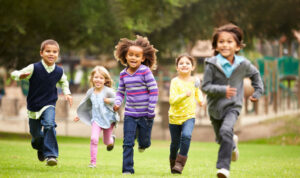
Dr. Joseph E. Colford, Ph.D.
Professionals in the fields of education and mental health have recognized for some time the importance of Social and Emotional Learning (SEL), a critical adjunct to academic learning in our schools. SEL is a process through which children and adults acquire skills to enable them to manage their emotions, take responsibility for their own behaviors, maintain positive relationships with others, and communicate effectively. There are many evidence-based programs available to impart these skills.
The Collaborative for Academic, Social, and Emotional Learning (CASEL) provides evidence that SEL can boost children’s academic performance by 11 percentile points, improve their classroom behavior, and increase their ability to manage stress and emotions. Even long after their school years are over, SEL will provide them with skills critical to their employability and their success in the workplace.
Other organizations have weighed in on this topic over the years. According to the U.S. Public Health Service, “Fostering social and emotional health in children as part of healthy child development must therefore be a national priority.” The Every Student Succeeds Act (ESSA), signed into law by President Obama in 2015, allows for funds to be utilized for SEL activities, and it requires schools to use more than just academic performance as a measure of student success. Finally, the National Association of State Boards of Education provided guidelines for measuring children’s social and emotional competencies.
The Urban League and the Social Emotional Learning Alliance for the United States underscored further the importance of SEL in declaring this past March 27th as the inaugural International Social Emotional Learning Day (#SELday) whose aim is to create an annual global campaign designed to recognize and promote the importance of SEL in schools and communities. On each SELday, educators and community groups are encouraged to create activities and events that raise awareness of SEL and its positive impact in the lives of children. SEL resources and other ideas for celebrating it can be found at www.selday.org. You can also visit our ChildWIN page for free resources and products.
New Jersey’s own Governor Philip Murphy and Lieutenant Governor Sheila Oliver also declared March 27, 2020, as Social and Emotional Learning Day in the state. Among the several Proclamations made was one that declared: “supporting the implementation of evidence-based SEL is a wise use of public resources, as there is strong evidence that SEL skills are linked to beneficial, long-term social and economic outcomes, including cultural competency and employability.”
While academic performance is indeed one measure of student success, there are other non-academic factors which are predictors of lifelong success beyond the classroom. Measures of IQ and standardized test scores have something to add to the mix, but the ability of a child to maneuver the intricacies of a sometimes confusing social and work world require more than what scores may indicate. Maybe SEL can be the difference-maker.
Why else do some employers conduct group interviews for a job opening besides just a paper screening of an applicant’s high school or college transcript? Perhaps the need for team-building social and interpersonal skills is more important than the numbers on a transcript.
Joseph E. Colford, Ph.D., NJ Licensed Psychologist
Professor Emeritus, Georgian Court University
For schools looking to bring SEL to their students, the ChildWIN Wellness Walk is ideal. It helps with self awareness & self management!




